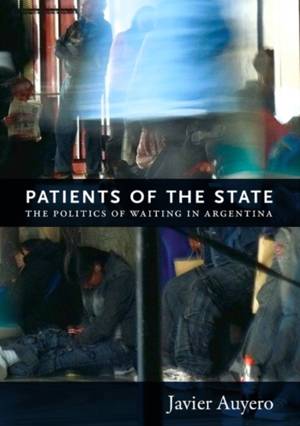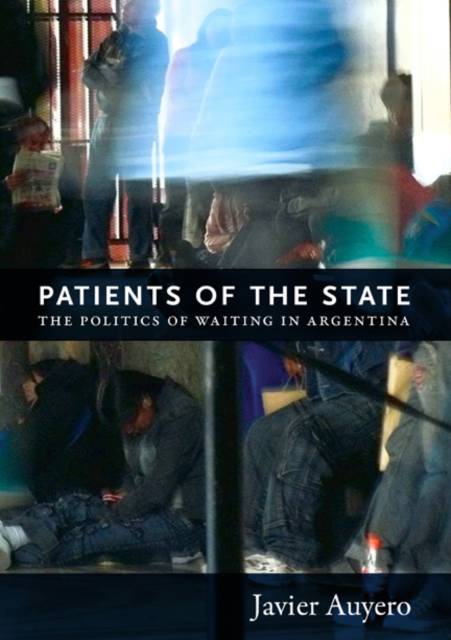
- Afhalen na 1 uur in een winkel met voorraad
- Gratis thuislevering in België vanaf € 30
- Ruim aanbod met 7 miljoen producten
- Afhalen na 1 uur in een winkel met voorraad
- Gratis thuislevering in België vanaf € 30
- Ruim aanbod met 7 miljoen producten
Zoeken
€ 49,95
+ 99 punten
Omschrijving
Patients of the State is a sociological account of the extended waiting that poor people seeking state social and administrative services must endure. It is based on ethnographic research in the waiting area of the main welfare office in Buenos Aires, in the line leading into the Argentine registration office where legal aliens apply for identification cards, and among people who live in a polluted shantytown on the capital's outskirts, while waiting to be allocated better housing. Scrutinizing the mundane interactions between the poor and the state, as well as underprivileged people's confusion and uncertainty about the administrative processes that affect them, Javier Auyero argues that while waiting, the poor learn the opposite of citizenship. They learn to be patients of the state. They absorb the message that they should be patient and keep waiting, because there is nothing else that they can do. Drawing attention to a significant everyday dynamic that has received little scholarly attention until now, Auyero considers not only how the poor experience these lengthy waits but also how making poor people wait works as a strategy of state control.
Specificaties
Betrokkenen
- Auteur(s):
- Uitgeverij:
Inhoud
- Aantal bladzijden:
- 216
- Taal:
- Engels
Eigenschappen
- Productcode (EAN):
- 9780822352334
- Verschijningsdatum:
- 4/05/2012
- Uitvoering:
- Paperback
- Formaat:
- Trade paperback (VS)
- Afmetingen:
- 150 mm x 213 mm
- Gewicht:
- 272 g

Alleen bij Standaard Boekhandel
+ 99 punten op je klantenkaart van Standaard Boekhandel
Beoordelingen
We publiceren alleen reviews die voldoen aan de voorwaarden voor reviews. Bekijk onze voorwaarden voor reviews.











